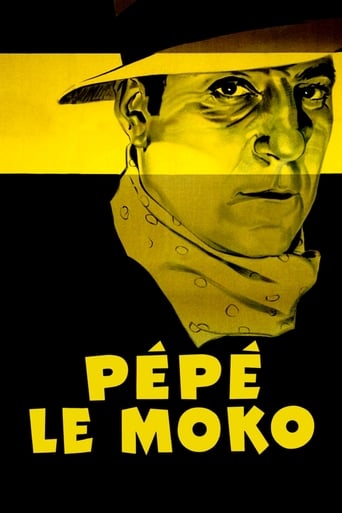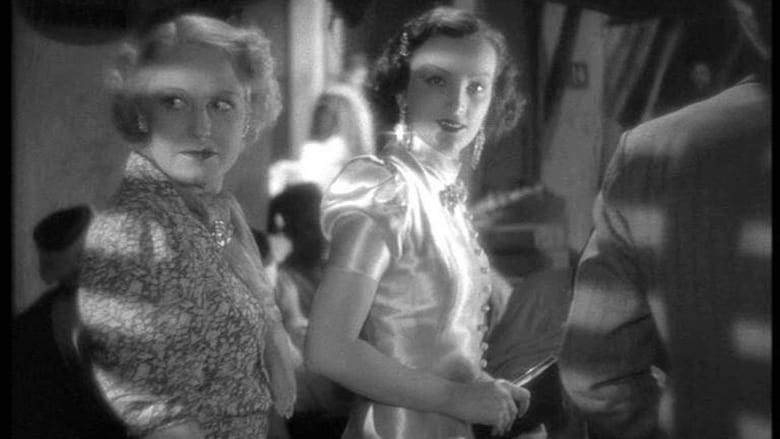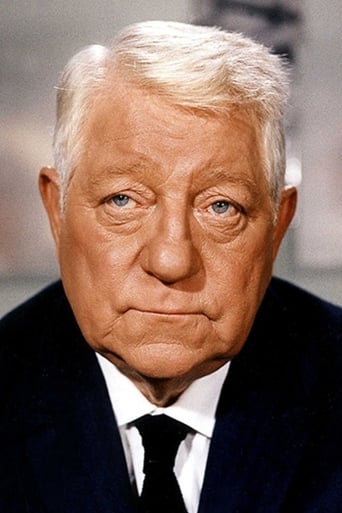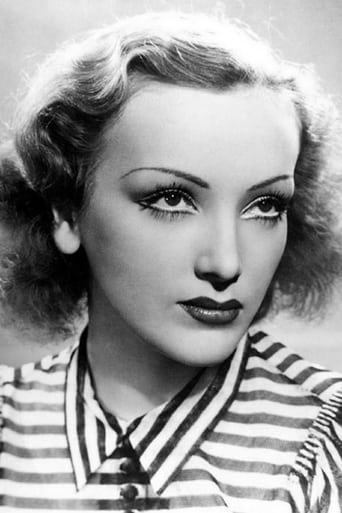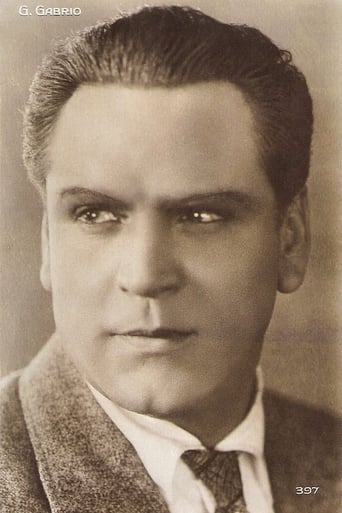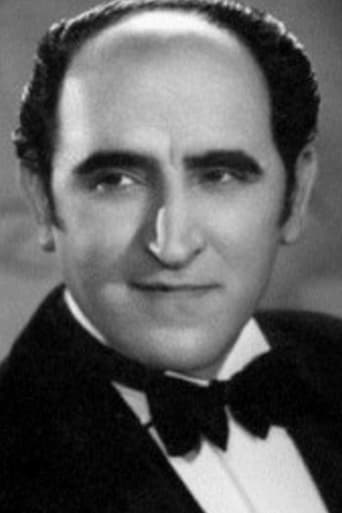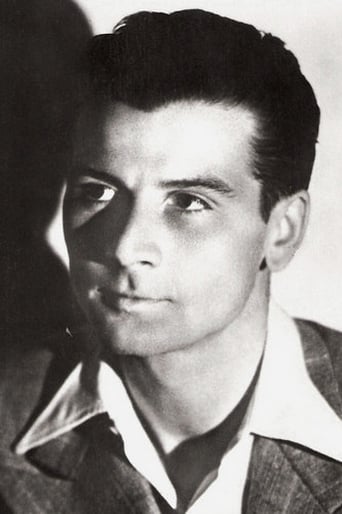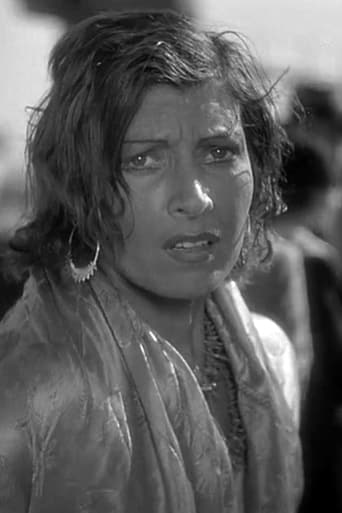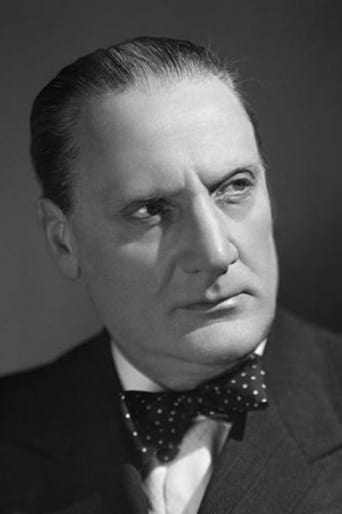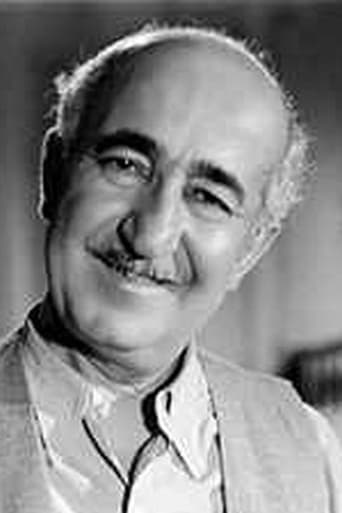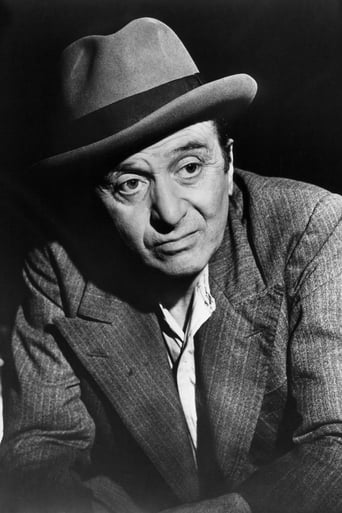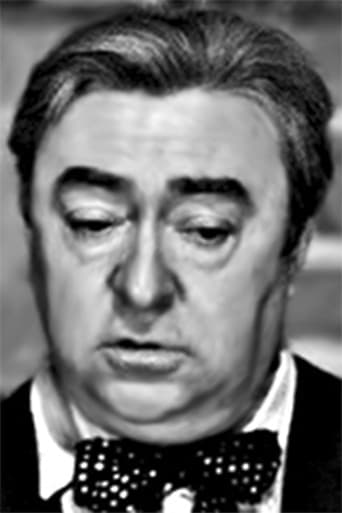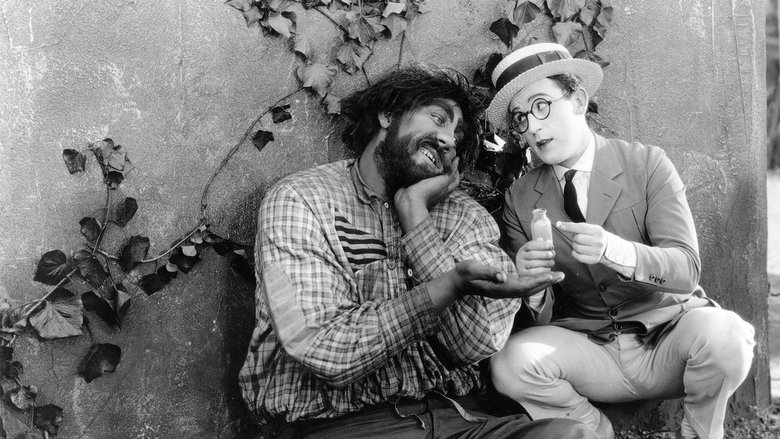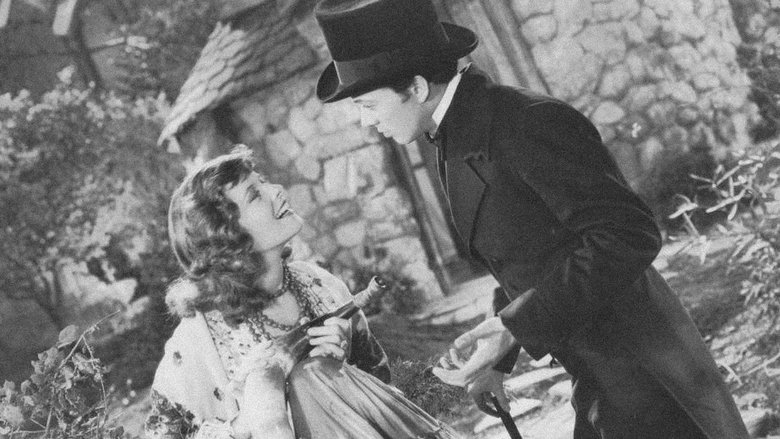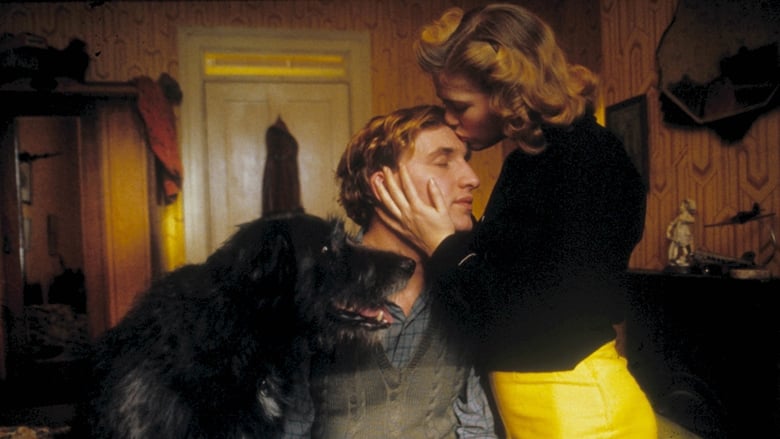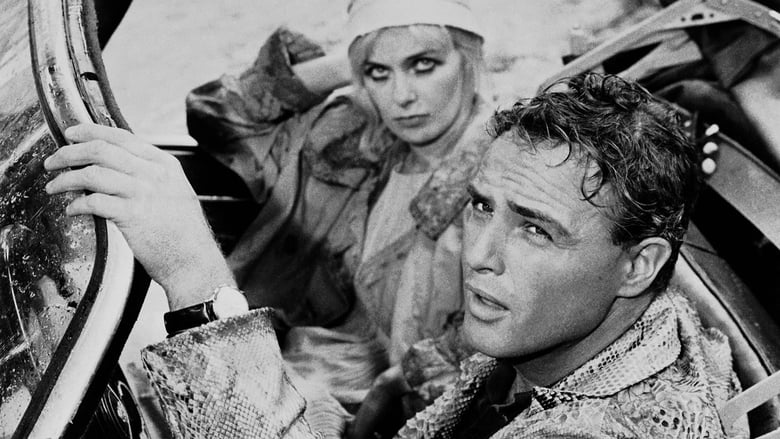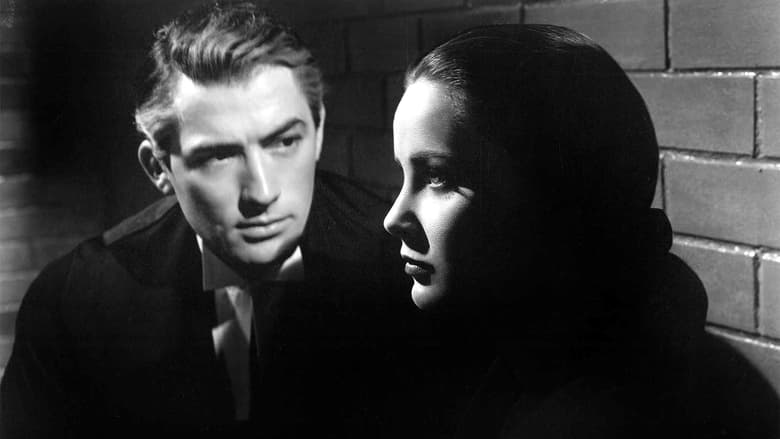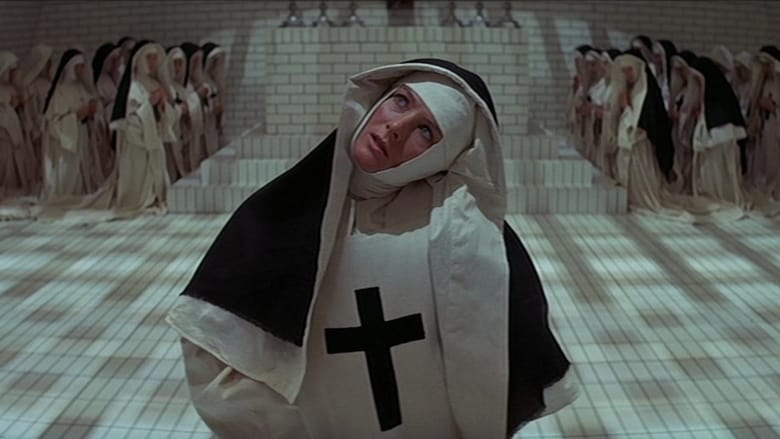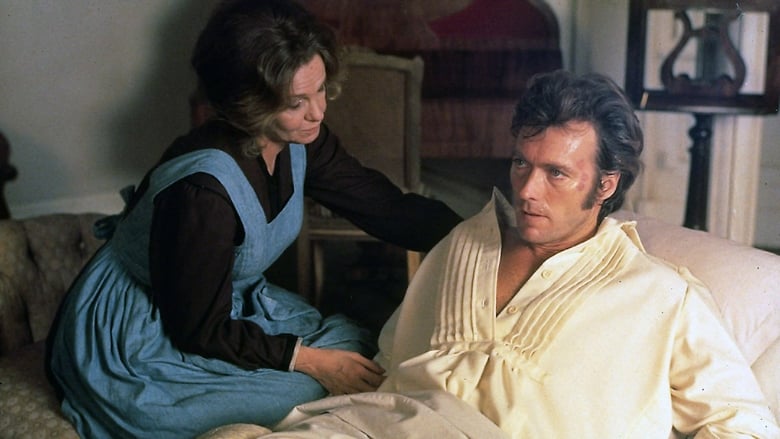Pépé le Moko, one of France's most wanted criminals, hides out in the Casbah section of Algiers. He knows police will be waiting for him if he tries to leave the city. When Pépé meets Gaby, a gorgeous woman from Paris who is lost in the Casbah, he falls for her.


Similar titles










Reviews
Pépé le Moko (1937) is a French movie directed by Julien Duvivier.Jean Gabin plays Pépé le Moko, a Parisian gangster and jewel thief who is pursued by the police. He lives in Algiers' Casbah, where he's safe as long as he doesn't try to leave. He has a beautiful girlfriend Inès, played by Line Norp, and loyal gang members. The Casbah is his protection, but it's also his prison. The excellent actor Lucas Gridoux plays Police Inspector Slimane, who actually likes Pépé, but who tells Pépé that one day he will have to arrest him. That will happen when Pépé leaves the Casbah. (He's honest in this--that's his plan. He knows it, and Pépé knows it.)Into this situation comes Mireile Balin as Gaby, a beautiful young French woman who is the mistress of a much older man. It's love at first sight between Pépé and Gaby. Of course, she can't stay in the Casbah, and he can't leave it. That's the point around which the plot pivots.I enjoyed watching this film. Even though the movie is almost 70 years old, it doesn't have a dated feel to it. (Like "Casablanca," it's timeless.) It's worth seeing on its own merits, but also for an interesting look at film history. Just a year later, a U.S. version was produced, with Charles Boyer as Pépé and Hedy Lamarr as Gaby. Except for the leads, all the actors in the U.S. version look like the actors in the French version. (I had to check the IMDb cast listings to make sure they weren't actually the same people.) The U.S. version copies the French original scene for scene, and probably frame by frame. I don't know if this kind of duplication was--or is--legal, but I found it pathetic. The good news is that IMDb reviewers weren't fooled by the copy. Pépé le Moko has an excellent rating of 7.7, while Algiers has a mediocre 6.9. I saw the film on DVD, where it worked well. If you can see it on the large screen, all the better. If you haven't seen either version, see the French film first. "Pépé le Moko" is the real thing. "Algiers" is interesting as well, but it's really just a lesser imitation.
Depending on your definition this is or isn't film noir, and the space inbetween explains how malleable is the term. The story has some of the elements, a hardened crook, cops on his trail, a certain karmic inescapability that is not fate, a seductive woman who is used to lure him out, a downbeat finale where the universe is not beaten.But it is important to distinguish, at least as far as the film noir debate goes, that the desired woman is not the femme fatale, and the one who actually serves as her is a heartbroken girlfriend, a traditional dramatic trope.Still so far as the karmic aspect is concerned, this is deeply noirish. Our man is holed up in the one place where police cannot find him, the Casbah of Algiers, we're taken on a tour of a place that looks very much like this man's soul, and does so throughout the film, so at once wild and sweet, teeming in the narrow streets and crowded tenements with impulsive life, love, betrayal. When he is gloomy, the whole place feels seedy and dangerous. When he's happy and singing from his balcony, the whole place erupts in cheers and song, from one sunny terrace to the next, all of them overlooking the sea promising freedom.This is karmic and not fate, not some arbitrary decree from the gods, because the prison is of his making and he's only there because his actions have brought him. He survives in the one place he has carved for himself, it is no mysterious coincidence then that he is there, in the sense that the place is very much like him.This is no idle talk either. I spent my student years in a small Aegean island of 25k people that looks exactly like the Casbah, more precisely the modern Casbah in its state of neglect. These seaside citadels are more or less the same throughout the Mediterranean, a lot of jumbled architecture without clean pattern, and were built this way to confound invaders from sea, usually saracen pirates. They were built for Pepe's purpose, that is to conceal and prevent access. In our case the invaders are French, colonists. The Casbah would soon serve as the cornerstone of Algerian liberation.There is a woman that is from there and does for him what the place does, nurtures him with wild-eyed passion, but of course he yearns for home. Another woman mirrors home, the fresh, elegant girl from Paris, he looks into her eyes and sees boulevards and cafes, the Place Blanche.You need to see this just for the finale. The claustrophobic sense of place is so pervading that when we finally step out into the harbor for the last hope of escape and our eye finally opens up, you can practically smell freedom in the sprays of sea water in the air.It is magic. He sails away on the image promising home, leaving his body behind.
It's not so surprising that this film originally bore the working title of "Les Nuits Blanches", as it certainly shares more than a passing resemblance to Dostoevsky's timeless tale and Visconti's mesmeric adaptation. "Pepe Le Moko" is, more than anything else, a love story, though it functions more as a commentary on the dynamics and nature of love than an exultation in its virtues. Like Dostoevsky's hapless dreamers, Duvivier's characters are in love with phantoms, incorporeal fantasies that they project onto canvas of flesh. Naturally, idealism and reality are hopelessly estranged, and efforts of reconciliation can only precipitate frustration and tragedy.Pepe le Moko is a tormented fugitive and exile, liege lord of a vice-ridden, sweltering microcosm and crown fool. Like the swaggering, stolid gangsters of Jean-Pierre Melville, Pepe is a victim of himself, prisoner of arbitrary codes of masculinity and honor. His hauteur are undermined by the minuteness of his empire, itself infested with conspirators eager to sell him to the police. His "freedom" itself is pathetic enough to be risible, venturing outside the insular sanctuary and he is fair game for the police. Clinging doggedly to whatever semblance of liberty he has left, Pepe acts out a tragic comedy within the confines of his circumscribed universe, his roles of Don Juan and Capone underscored by pathos and ennui.When a flighty Parisienne catches a glimpse of the fabled kingpin, she becomes instantly infatuated with his imperious manner, seeing him and the bloodthirsty world he represents as salvation from her stuffy bourgeois existence. In Aeschylean fashion, neither Pepe nor said femme fatale love one another, they merely love effigies, ideals. The female is Pepe's solitary conduit to his beloved Paris and the only confidante for his crippling homesickness. His indifference to her extravagant jewelry reveals the absolute arbitrariness of his criminal pursuits, a mere pretext for action in such boring climes. Yet, the viewer is acutely aware that the Paris Pepe longs for no longer exists, if it is represented by the addle-brained, vacuous Sybarites that his lover surrounds herself with. The mere fact that a Parisienne would exalt him as her liberator should itself alert him to the folly of his reveries. Sustained by his illusions, Pepe withdraws further from reality. Everything about Jean Gabin's character makes me want to cry- his fragile stoicism, his crestfallenness, his obsessive delusion, his self-destructiveness.There are some who would take issue with the implicit ethnocentrism in the "Casbah" imagery. Note that this was an adaptation of a novel written in the midst of fervent pro-colonial sentiment, and that, in Duvivier's hands, the Casbah becomes mythic, poetic, allegorical. The impenetrable veils of smoke are almost Cocteau-esquire, giving the film the sensuous richness of Scheheradze's chambers. At the same time, the mists accent Pepe's self-deception- his entire persona is fictive, as are his illusions of freedom and escape. The sequence of Pepe's fevered sprint toward the harbor may be maligned nowadays for its visual sloppiness, but I think it's absolutely marvelous, masterfully capturing Pepe's childlike impetuousness. As Pepe courses onward, the surrounding Casbah gradually blurs around him, the juxtaposition of back/foreground indicating his flight from one fantasy into another, as well as highlighting the sheer depth of his delusory monomania and tunnel-visioned myopia. As psychology transformed into image, this one works.Beyond everything, Pepe Le Moko is a deeply cynical film, its slightly jaundiced perspective on human nature reminding one of Clouzot, Hitchcock and Joseph Conrad. The entire film is a tight lattice of interwoven self-interests- look at the Parisienne's corpulent, autocratic husband, the obsence, oleaginous Regis and the servile, serpentine Slimane for some fine examples of the vile characters on display. Even the character who loves deeply and truly, the forbearing Ines, would rather betray Pepe than be estranged from him...a commentary on the covetous, self-serving nature of love, perhaps?I haven't seen any other Duvivier films, but he doesn't seem to be the humanist that Becker and Renoir are, and I can appreciate him all the more for that. Like Becker, he seems to have been largely misunderstood and under-appreciated in his time, at least on these shores, and the interview appended on the Criterion disk suggest that he was a retiring and modest sort, never garrulous about his art (and hesitant to even think of it as art, which it assuredly is). What a film this is....a terrific achievement. I love the golden age of French cinema, and this affirms and reinforces that affection.
Pépé le Moko(Jean Gabin), an elusive gangster(with a special gift as a master thief)hides out from the French authorities in the labyrinthine Algerian Casbah. The citizens within this place assist their local celebrity because he represents that anti-authoritarian way of life against the government outside their city walls. A paid informer within the city, Régis(Fernand Charpin), has concocted the perfect plan to draw Pépé out of the city by using the gangster's best friend, Pierrot(Gilbert Gil)as bait. By using a fake note stating Pierrot's mother was sick just out of the city, he will be cornered by police and arrested. That plan doesn't exactly go as planned because Pépé doesn't leave the Casbah and Pierrot returns badly wounded(..eventually dying). Killing Régis doesn't take away the agony of losing a brother(their relationship modeled that of family)and the only true thing that helps bring Pépé out of his sadness is a growing love affair with a Parisian nicknamed Gaby(Mireille Balin). Unfortunately, he has no further use for Algerian Inès(Line Noro)who loves him dearly. Pépé even tells her that he has been bored in their relationship for some time describing tying her to the very Casbah for which he wishes to escape. This triangle will certainly open a possibility for Pépé's downfall. Yearning for Paris, Gaby represents a "different landscape" for Pépé who just wishes to escape Casbah's cage he's boxed in.This is a quintessential french noir and Gabin is the European actor who represents a symbol of the stylish gangster films from this golden age of crime film. As he often does, Gabin plays his gangster as cool, dashing, charming & mysterious only conveying to us little elements a bit at a time. He IS the film and it's style matches how he plays Pépé. But, as many noir have always tended to operate, Pépé is a crook and must be denied true love. A man with past mistakes(..and, let's not kid ourselves, Pépé had made many in his long life of crime)will certainly reap what he sows. It's interesting to note that the man who eventually traps Pépé is the smallish, yet cunning, Inspector Slimane(Lucas Gridoux)..a cop who knows Pépé's exact locations, chats it up with the criminal, but faces off with him saying that he will be the one to catch him. He's the very man who schemes the perfect plan to nab the gangster by using the man's bounding love against him.
